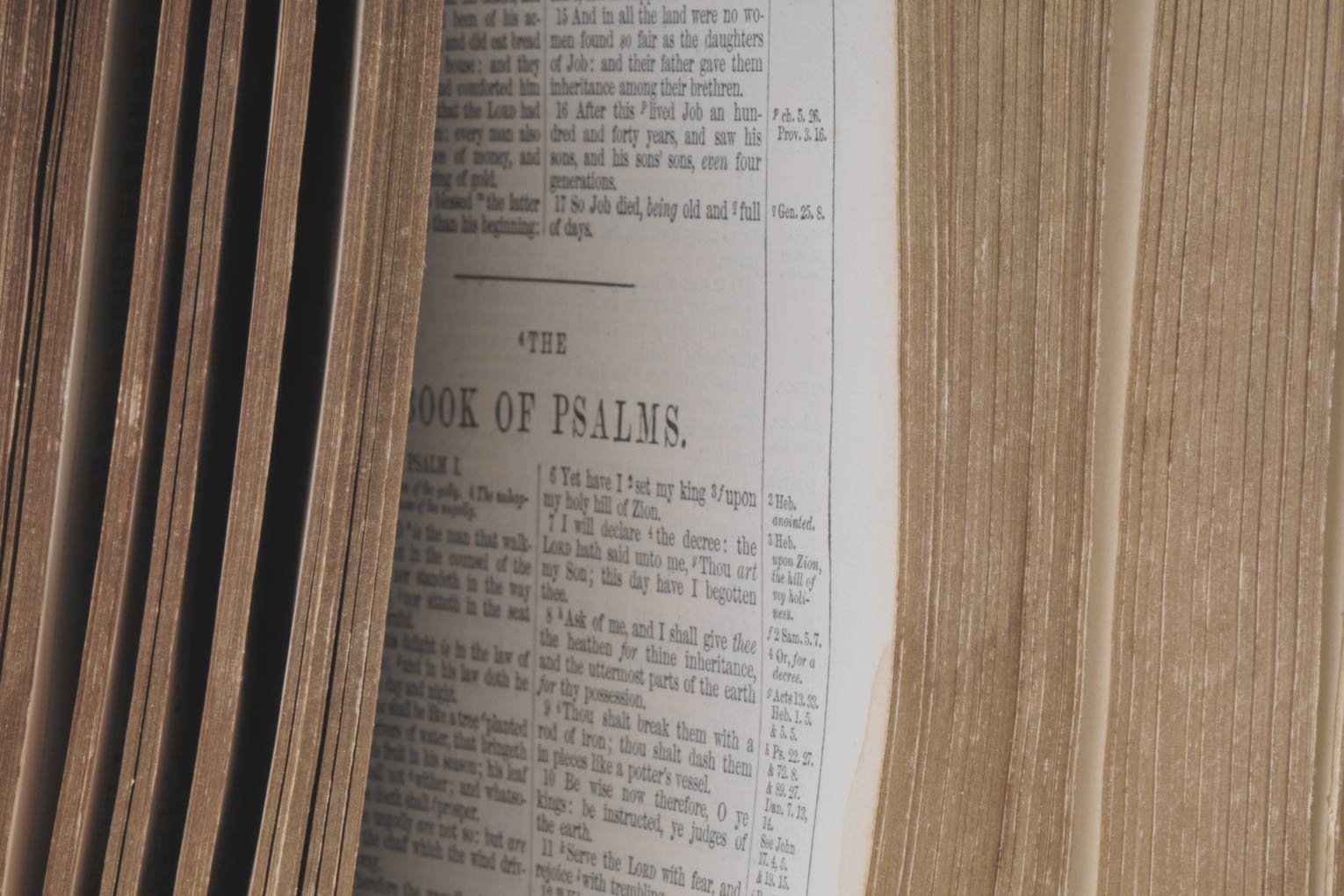
The pastors at Emmaus Church, where I serve, took the summer to preach through the major genres, or types, of psalms in the Psalter. Obviously, I was thrilled. And obviously I volunteered to preach on imprecatory psalms. I’ve never heard a sermon on an imprecatory psalm, so of course I fancied the opportunity to break new ground (the folly of youth[ish])!
As I began prepping the sermon and thinking through Psalm 58, I realized that there is a good reason why people don’t often preach these psalms—they’re tough! I mean, what do you do with phrases like “O God, break the teeth in their mouths” (Ps 58:6), “the righteous . . . will bathe his feet in the blood of the wicked” (Ps 58:10), and this perennial favorite, “Blessed shall he be who takes your little ones and dashes them against the rock!”?
Tough words made even more difficult by their conspicuous presence in God’s Holy Writ. Not only that, but they’re right there in the Psalms. The Psalms! The church’s prayer book! It would make the preacher’s job a lot easier if they appeared in the mouths of the wicked. Then we could just brush them aside — "Nothing to see here, folks." So, sure, I get why people don’t preach these psalms. But here are four reasons you should:
1. Imprecatory psalms resonate with those longing for justice.
Let’s start with the name, “imprecatory psalm.” Now, I’m not always one to quibble, but the name itself is really a misnomer. See, these aren’t imprecations, or curses, in the sense that we think of curses. The author isn’t putting a curse on someone. Really we should call them “justice psalms.” These psalms are asking for God’s justice. In Psalm 58, for example, David is distraught over the miscarriage of justice (Ps 58:1–2). In response he asks for God’s justice to be carried out against them so that “Mankind will say, ‘Surely there is a reward for the righteous; surely there is a God who judges on earth’” (Ps 58:11). Victims of injustice resonate with this.
2. Imprecatory psalms are prayers.
David is not recounting how he broke a guy’s face in half. He’s asking God to do it. David prays that God will bring about God’s justice. To be sure, David asks for justice in particularly colorful terms, but (combining this point with the previous one) he is essentially praying, “Your kingdom come, your will be done . . .” (Matt 6:28). I know this is true because God really does desire justice. He actually wants the orphan, the widow, and the sojourner (foreigner, outcast, immigrant) to be treated fairly and with kindness (Lev 19:34; Exod 22:21; Deut 10:19). Victims of injustice need to know how to pray.
3. Imprecatory psalms can keep us humble.
Justice psalms are a reality check for those of us who may be blinded by the logs in our own eyes. Psalm 58:3–5 describes the wicked. They’re evil from birth, always lying, and refuse correction. Hmmm . . . sounds a bit familiar, if I’m being honest. I don’t think the point of this psalm is to expound on the sinfulness of all humanity, but it’s an important corollary lesson. I am evil from birth. I am always lying. I refuse correction. But God!
But God, being rich in mercy, because of the great love with which he loved us, even when we were dead in our trespasses, made us alive together with Christ—by grace you have been saved—and raised us up with him and seated us with him in the heavenly places in Christ Jesus, so that in the coming ages he might show the immeasurable riches of his grace in kindness toward us in Christ Jesus. For by grace you have been saved through faith. And this is not your own doing; it is the gift of God, not a result of works, so that no one may boast. For we are his workmanship, created in Christ Jesus for good works, which God prepared beforehand, that we should walk in them.
All of us need to be confronted with the gospel.
4. Imprecatory pslams are lessons in forgiveness.
You see, friend, sometimes God’s justice works out differently than we, or David, think it should. “But God” makes a huge difference. And sometimes the grace and mercy of God overwhelms our enemies, which puts us in the position of welcoming our enemies into our family. What a display of the gospel! Praise God that he does forgive us. Praise God that sometimes his justice is different than we want. Praise God that Jesus Christ took on all of God’s wrath. And praise God that he welcomes sinners. Victims of injustice need to know how to live when God’s justice means God’s forgiveness of the unjust.

